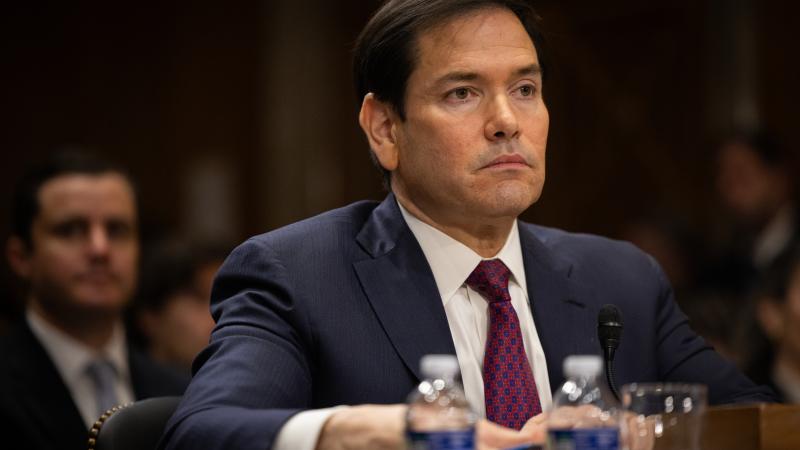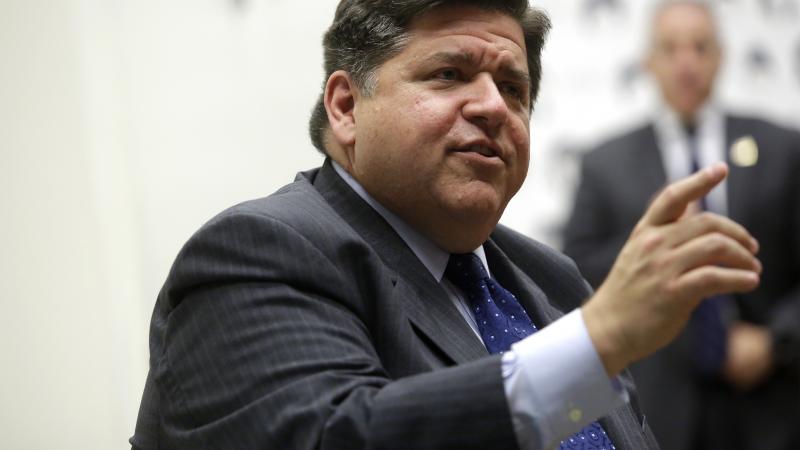Professor punished for arguing classical music isn't racist gets massive settlement
University of North Texas professor wanted "everything exposed publicly" at trial but settled for $725,000. Other courts side with prof punished for sharing COVID views with media, student forced to subsidize liberal speech.
More than four years after suing the University of North Texas for punishing him in a spat over alleged racism in classical music, distinguished research professor Timothy Jackson accepted a $725,000 settlement with the taxpayer-funded school in a legal fight that pitted embattled state Attorney General Ken Paxton against former state Solicitor General Jonathan Mitchell.
The parties filed a joint stipulation of dismissal earlier this month, signed by Paxton's office as counsel to UNT and Mitchell as co-counsel to Jackson. The settlement also gives back Jackson the music theory journal he founded and edited and even reduces his teaching load.
UNT kicked Jackson out of the Journal of Schenkerian Studies, named after German music theorist Heinrich Schenker, and put it on ice for five years after Jackson published an issue responding to a black peer's claims that the Jewish Schenker was an "ardent racist."
Jackson's critique in volume 12 said Hunter College professor Phillip Ewell peddled a "conspiracy theory" that is “part and parcel of the much broader current of Black anti-semitism." He also said musical tastes argued why few black people are music theorists, according to the Denton Record-Chronicle, which saw volume 12 before UNT pulled it.
Other volumes are posted free on the journal's page, while volume 12 is listed as a $22 paperback by UNT Press but not in fact available for sale.
The university opened an investigation of the journal and editors including Jackson after anonymous graduate students condemned the Ewell response issue for "platforming of racist sentiments" and demanded its editors be punished. Ewell wrote and circulated an "open letter on antiracist actions" against the journal as well.
Avoiding trial is a calculated gamble for Jackson perhaps more than UNT, at a time when courts seem inclined to side with stifled professors and red states, the White House and federal agencies are scrutinizing perceived infringements on academic freedom against conservatives and cosmetic changes to campus diversity, equity and inclusion offices and programs.
Jackson won an early victory in January 2022 when U.S. District Judge Amos Mazzant denied UNT's motion to dismiss, upheld 20 months later by the 5th U.S. Circuit Court of Appeals.
The parties' motions for summary judgment were still pending before Mazzant, and jury selection had been scheduled for April 25 when the parties notified the judge March 11 they had reached a settlement in principle, the docket shows.
"I would have liked to go into trial ... to have everything exposed publicly, more obviously" and "send a stronger message not just to UNT, but to the whole university system in the United States," Jackson told the Record-Chronicle. But accepting a settlement was better than "to really pursue a devastating blow."
UNT ignored a "nonmonetary resolution" offered by Jackson's lawyers that would simply restore the journal, "retract the defamatory statements" against Jackson – who also sued faculty and students for defamation – and pay Jackson's legal fees, co-counsel Michael Thad Allen told the Record-Chronicle.
Instead, Jackson is getting $400,000 personally in the legal settlement while the other $325,000 is marked for his legal fees. In addition to Allen Harris Law and Mitchell, the Academic Freedom Alliance and Foundation Against Intolerance and Racism paid some of Jackson's fees and costs, Allen told Just the News.
The university, as well as faculty and student employees accused of defamation, admitted no wrongdoing in the settlement, which goes into great detail on how the journal will be run. UNT did not respond to queries about the settlement.
The Journal of Schenkerian Studies, required as a condition of UNT receiving a trove of music and papers from the estate of Schenker's friend Reinhold Oppel, will be edited by a "full-time member of an accredited institution of higher education." Jackson will fill that role for five years and appoint a "co-editor" in year three to succeed him.
UNT will not subject the journal to different "standards of editorial review" than other UNT publications, all of which abide by Committee on Publication Ethics standards. Memory-holed volume 12 will be made available "coincident" with volume 13, which will be published after a new editorial board takes the reins.
It will give Jackson a "one-course reduction from his teaching workload assignment" while he's editing the journal, under College of Music guidelines, and appoint a half-time student research assistant for the journal and UNT Center for Schenkerian Studies.
His lawyers at Allen Harris Law also convinced a Minnesota court last month to greenlight three of five claims against the Mayo Clinic by anesthesiology professor Michael Joyner for suspending and denying him future salary increases for talking to the media about a disfavored COVID-19 treatment and the inherent athletic advantage of males over females.
The nationally known clinic threatened to fire Joyner if he didn't limit his media comments to "approved topics" and "stick to prescribed messaging," his disciplinary letter shows. The new ruling, which sets up trial for September, follows a year-ago ruling that greenlit Joyner's breach of contract and retaliation claims.
Both parties touted it as a victory to the Post Bulletin, which reported a jury will consider "genuine issues of material fact" in parts of Joyner's breach of contact claims and whether Joyner’s direct supervisor, Carlos Mantilla, committed "intentional and malicious interference” with Joyner’s contract.
Allen Harris Law isn't the only firm to score a recent coup in Minnesota on campus speech.
Last week, U.S. District Judge Laura Provinzino denied a motion to dismiss by the Minnesota State University Students Association against a compelled speech lawsuit by St. Cloud State University student Tayah Lackie, who objected to being forced to pay fees when she disagrees with its political advocacy such as "abolition of student debt."
Provinzino found the association is a "state actor" that can be sued because the Board of Trustees has "cloaked" it with statewide authority to represent students and set the fees students must pay, which SCSU must then collect and remit. The judge also refused to toss the "unjust enrichment" claim, when a jury might deem the collection "morally wrong."
The Liberty Justice Center and Upper Midwest Law Center, which together represent Lackie, said they will now move into legal discovery.
Between the Land of 10,000 Lakes and the Lone Star State, Missouri Gov. Mike Kehoe last week signed legislation (SB 160) protecting the First Amendment freedom of association rights of student groups to set their own leadership criteria.
Public educational institutions are prohibited from taking "adverse action against a belief-based student association or an applicant" because it's "political, ideological, or religious," because of its viewpoint or expression, or based on its requirement that leaders "be committed to furthering" its mission or living out its beliefs.
The signed legislation drew cheers from the Alliance Defending Freedom and Foundation for Individual Rights and Expression, which said Missouri had joined Alabana, Arizona, Arkansas and Tennessee in "strengthening protections for the First Amendment rights of student organizations on campus."
The Facts Inside Our Reporter's Notebook
Videos
Links
- four years after suing the University of North Texas
- $725,000 settlement
- embattled Attorney General Ken Paxton
- joint stipulation of dismissal
- UNT kicked Jackson out of
- black peer's claims
- Denton Record-Chronicle
- journal's page
- $22 paperback
- anonymous graduate students condemned
- "open letter on antiracist actions"
- U.S. District Judge Amos Mazzant denied
- upheld 20 months later
- the docket shows
- suspending and denying him future salary increases
- year-ago ruling that greenlit Joyner'
- Post Bulletin
- Judge Laura Provinzino denied a motion to dismiss
- move into legal discovery
- SB 160
- Alliance Defending Freedom
- Foundation for Individual Rights and Expression














